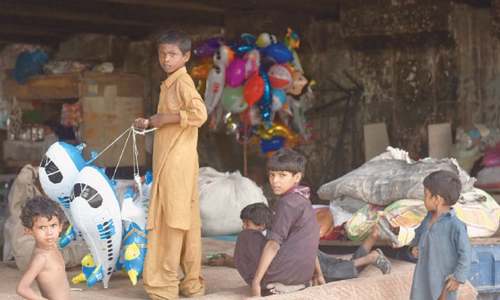Poverty and hunger resulting from the novel coronavirus crisis can lead to more deaths than the disease — that has killed more than 549,000 people worldwide — itself, Oxfam warned.
Oxfam, an international confederation of 20 non-governmental organisations that work to eliminate poverty and hunger, said in a press release dated July 9, that Covid-19 related hunger can kill 12,000 people per day by year end.
According to an Oxfam report, The Hunger Virus, Covid-19 is "deepening the hunger crisis in the world's hunger hotspots". Additionally, the health crisis is giving birth to new "epicentres of hunger" across the world.
It pointed out the top ten "worst hunger hotspots" in the world, including Venezuela and South Sudan that are already facing a severe food crisis, which is worsening due to the economic impacts of the pandemic.
Yemen, which is already facing a hunger crisis, and Sahel have also been highlighted as hotspots.
The briefing also identified emerging hunger hotspots, which include India, South Africa and Brazil, where millions are suffering from the brunt of the health crisis. "[...] Millions of people who were barely managing have been tipped over the edge by the pandemic" in these countries, Oxfam said.
The briefing also observed that women, and households run by women, are more likely to suffer from hunger even though they play a crucial role as food producers and agricultural workers.
"Women are already vulnerable because of systemic discrimination that sees them earn less and own fewer assets than men. They make up a large proportion of groups, such as informal workers, that have been hit hard by the economic fallout of the pandemic, and have also borne the brunt of a dramatic increase in unpaid care work as a result of school closures and family illness," the press statement read.
"Covid-19 is the final straw for millions of people already struggling with the impacts of conflict, climate change, inequality and a broken food system that has impoverished millions of food producers and workers," Oxfam quoted its Interim Executive Director Chema Vera as saying.
"Meanwhile, those at the top are continuing to make a profit: eight of the biggest food and drink companies paid out over $18 billion to shareholders since January even as the pandemic was spreading across the globe ―ten times more than the UN says is needed to stop people going hungry."
The organisation called upon governments to not only take measures to curb the spread of the virus, but also to work to "end this hunger crisis and build fairer, more robust, and sustainable food systems".














































